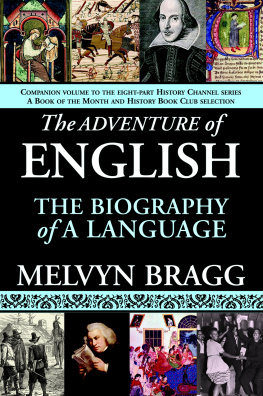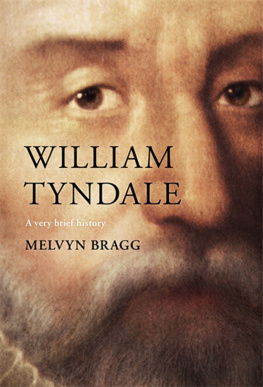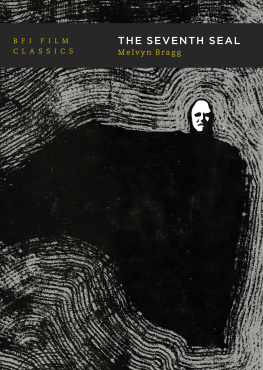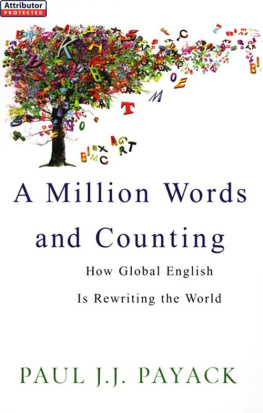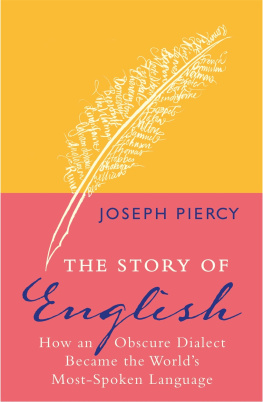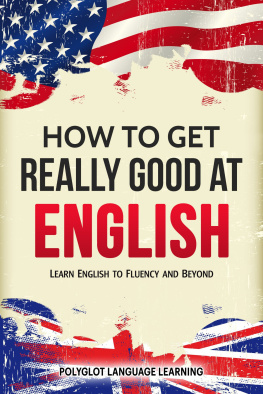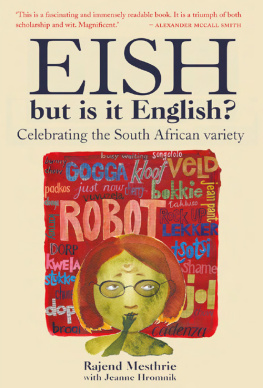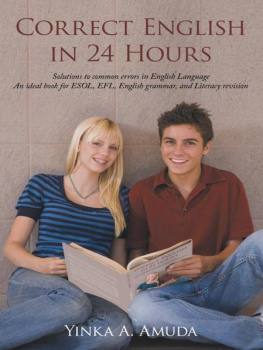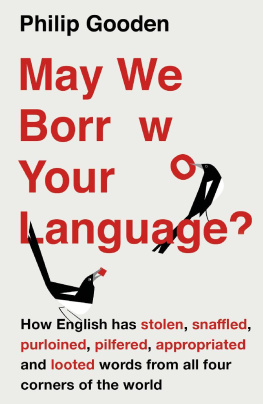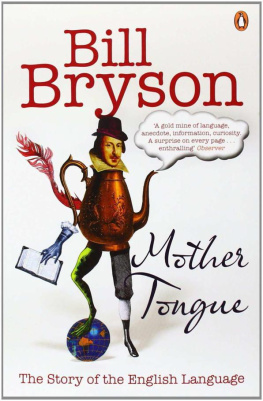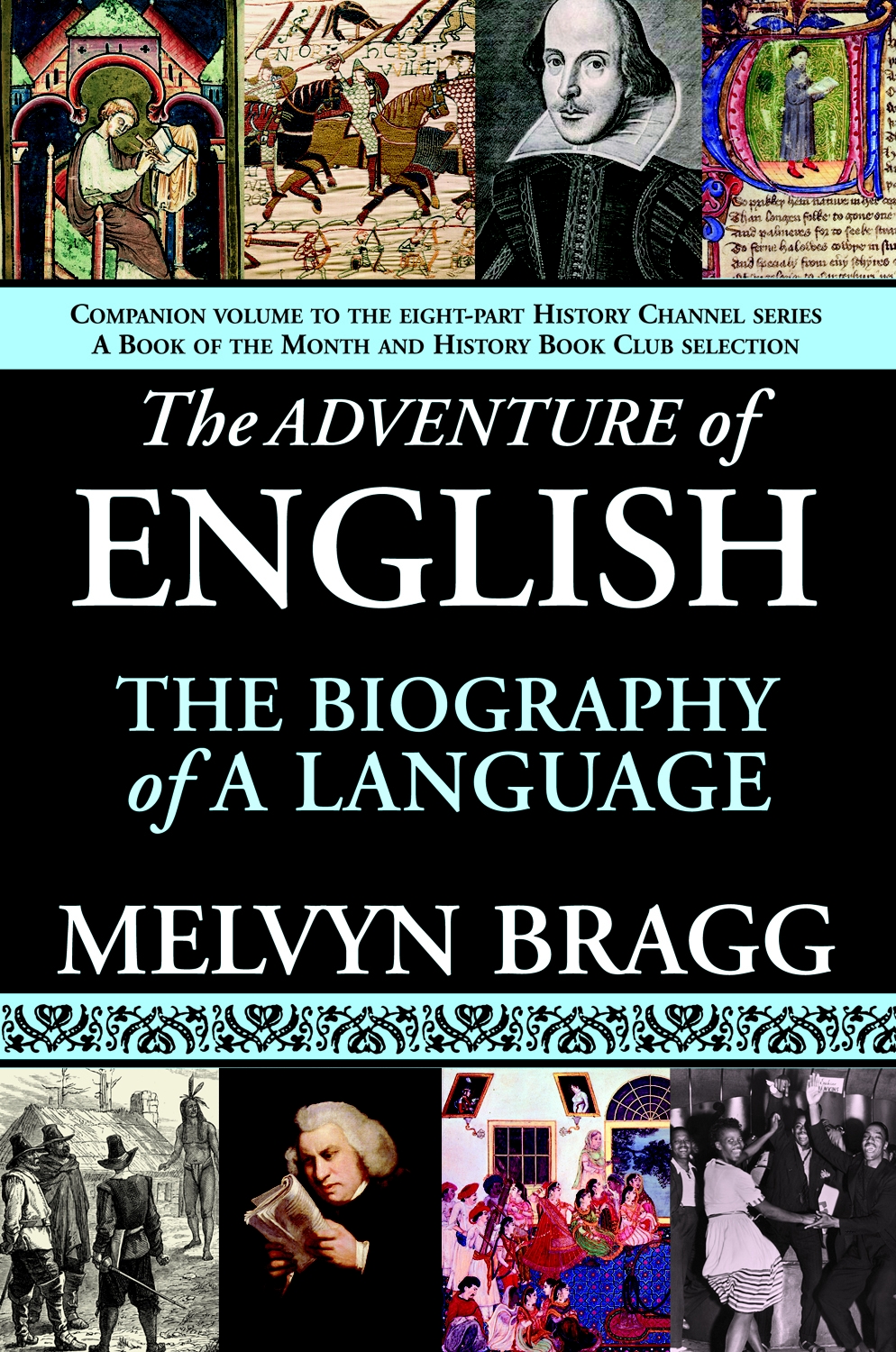Acknowledgments
W hen I wrote this book I started from scratch, but some of it is based on work I had done in radio and television. It is different from both in very many ways, not least in its greater volume of information and in its ambition. Because it is much longer, I was able to include substantially more material and go into more areas and express more opinions.
All of us who work in broadcasting know that, unlike writing a book, programme making can only be done as part of a team. The Adventure of English, which I first suggested several years ago, was eventually made by a team drawn mostly from London Weekend Televisions Arts Department. It was a pleasure to work with them.
First, I want to thank Simon Cherry. He was the Script Editor and his contributions were numerous, thoughtful and good-humoured. He threaded himself elegantly through minefields of the spelling and dating of thousands of words. At various stages I was lucky that the following researchers were employed, sometimes for one programme, sometimes for more: Jonathan Levi, Claire Holland, Andy Marino and Lucy Leveugle. The directors were long-established colleagues and friends: Robert Bee, David Thomas and Nigel Wattis. They brought high skills, many suggestions and great application to what grew into a complicated series, which became tightly stretched as we tried to do justice to this huge subject on adequate but not lavish resources. David Liddiment waved the project on at the ITV Centre and Steve Anderson, the Head of Factual Programmes, was the sort of constructive ally who matters.
The Adventure of English was the most gruelling work I have done in television. It was difficult because I was the author as well as the series producer and sometimes the two roles rubbed each other up the wrong way. Some of the scripts were drafted ten or more times. The directors developed the habit of convincing themselves that the best time of day to shoot was always dawn.
Before the television series I had made twenty-five radio programmes called The Routes of English for BBC Radio 4. These were produced by Simon Elmes, whose deep knowledge of the English language was put into the service of those documentaries which, like the television series, had the rare good fortune of being liked both by audiences and critics. In the course of these radio programmes I met several linguists, including Kate Burridge, Lynda Mugglestone and David Graddol, whose thinking and whose work excited me enormously and eventually led me to chance my arm on the eight hours of television into which we tried to squeeze and shape fifteen hundred years of the English language. We made rules for ourselves, we sought out apposite locations whenever possible, we infested the screen with words, we spoke Old English, Middle English and all other Englishes in the tongue we hope was most authentic, and we had co-operation wherever we went.
I am grateful to all those who agreed to take part in the television programmes, including Seamus Heaney, Kathryn Duncan Jones, Lynda Mugglestone, John Barton, Hubert Devenish and Professor Salikoko Mufuene: there were also many scholars and experts who answered our calls with courtesy. Dr. Kathryn A. Lowe of Glasgow University was not only a key contributor to the television series but it was to her I turned when I had finished the book to check it through. I am indebted to her for doing this so supportively and scrupulously. She made numerous suggestions, the majority of which I took up. Any errors are my sole responsibility.
A bibliography is attached. It includes those books we found most often most useful. There are some fascinating studies, led by Professor David Crystals fine Encyclopaedia of English.
I want to thank Rupert Lancaster at Hodder & Stoughton for editing the book so carefully, and my very good friend Julia Matheson with whom I have greatly enjoyed working for most of my working life.
My final acknowledgement is to the many writers whose work I have read, the many people I have spoken to, all of whom believe, as I do, that the creation and continued life of the English language is fascinating.
Ive been lucky three times over. To have had the chance to make programmes on the English language, to do it in the company of many people I admire and to be given the opportunity to start again and write this book on a subject which has fascinated me all my life.
In Wigton, my hometown, in the forties and fifties of the last century I got to know Willie Carrick, who wrote stories in the local dialect. He was town clerk, local historian and a great figure in that small landscape. He made me understand that the dialect we spoke was not a debased tongue but something rich, with a history, something to be proud of.
Later, at school, Mr. Blacker, the English teacher, taught by making us read aloud from English poetry, stopping every so often to question us on the meaning of key words and phrases, emphasising how rich they were, how much they covered.
Both long dead, but I hope that somewhere behind this book are their voices and their devotion to the English language.
Also by Melvyn Bragg
The Soldiers Return
A Son of War
Crossing the Lines
Picture Acknowledgments
Abbot Hall Art Gallery, Kendal, Cumbria: 40 photo Bridgeman Art Library. The Art Archive/Dagli Orti (fresco, Chapelle de St. Radegonde, Chinon, France): 8. Ashmolean Museum Oxford: 5 photo The Art Archive/Eileen Tweedy. Bodleian Library Oxford: 11 (MS Bod 764 f2r) photo The Art Archive, 17 (Ms Douce 104 f29r) photo The Art Archive, 23. British Library London: 1 (Ms Y.T.26.f2), 2 (Ms Cott.Nero.D IVf5v), 3 (Ms Cott.Vit A.XV f132), 4 (Ms Harl.2278 f98v), 9 (Ms Roy.14.E.111 f89), 10 (Ms Add.42130 f173 & f158), 12 (Ms Roy.18.E1 f175), 13 (Ms Harl.4380 f186v), 14 (Ms Lans.851 f2), 15 (G.11586 p.A111V ), 19 (Ms Cott.Vesp.f.III f8), 21 (C.23.A.5), 44 (Ms add.OR. 2 p17), 46 (1786.c.9 pII). British Museum London: 35 photo The Art Archive/Eileen Tweedy. The Brotherton Library, Leeds University Library: 38 below. Corbis: 30, 32. Corbis/Bettmann: 25, 26, 27, 28, 29, 33, 51, 52. Corbis/Hulton-Deutsch Collection: 50. Corbis Saba/Mark Peterson: 53. Corbis/Underwood & Underwood: 31. Corbis /Jane Wishnetsky: 45. Courage Breweries: 37 above photo The Art Archive/Eileen Tweedy. Mary Evans Picture Library: 16, 34. Fotomas Index: 37 below right. The Gleaner Company Limited, Jamaica: 47. Honourable Society of Inner Temple: 20 photo The Art Archive/ Eileen Tweedy. Hulton Archive/Getty Images: 42. Illustrated London News 1862: 43. Johnny Lau/Businessworks Pte Ltd/The Kuppies: 54. By kind permission of the Marquess of Bath, Longleat House, Wiltshire: 24. Musee de la Tapisserie Bayeux: 6 photo The Art Archive/ Dagli Orti. By Courtesy of the National Gallery of Ireland (portrait by John Lewis): 39. The National Library of Australia, Canberra: 48, 49 1936 by Allan & Co. Prop. Ltd., Melbourne. By Courtesy of the National Portrait Gallery London: 18 (Unknown artist), 22 (Unknown artist), 36 (Charles Jervas), 38 above (Alexander Nasmyth), 41 (Harry Furniss). Private Collection: 37 below left photo Bridgeman Art Library. Public Record Office, Image Library, Kew: 7 (E36/284 f3).
Bibliography
I have not listed classic English texts which are available in many editions (e.g. Dickens, Austen, Shakespeare).
General Books on the English Language
Bailey, Richard W.: Images of English (Cambridge, Cambridge University Press, 1991)
Baugh, Albert C., and Cable, Thomas: A History of the English Language (New York, Prentice Hall, 1951, 5th edn 2001)

